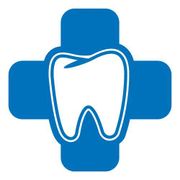
Teeth can lose their brightness for several reasons. From highly pigmented foods to lifestyle and habits, stains can easily form on or below the tooth's surface. If your teeth have lost their luster, there are ways you can correct and prevent future stains with the help of your dentist. Here is a guide to frequently asked questions about tooth discoloration.
4 FAQ About Tooth Discoloration
What are the different types of discoloration?
Intrinsic discoloration occurs when the inner structure of the tooth, called the dentin, becomes darker or yellowed. This can be caused by a variety of factors, including trauma to the tooth, certain medications, and excessive fluoride consumption.
Extrinsic discoloration, on the other hand, occurs when the outer layer of the tooth, called the enamel, becomes stained. This can be caused by smoking, drinking coffee or red wine, and poor oral hygiene.
What causes discoloration?
Tooth discoloration is caused by a variety of factors including highly pigmented drinks like coffee, tea, red wine, and dark sodas, as well as dark colored fruits and vegetables. Tobacco, whether smoking a cigarette or chewing tobacco, also plays a significant role in yellowing.
Poor hygiene, not brushing often or properly, along with skipping dental visits, oral trauma or disease, and medical treatments like chemotherapy or certain medications are also contributors to tooth discoloration.
How is it treated?
The treatment for tooth discoloration will depend on the type and severity of the discoloration. For extrinsic discoloration, professional teeth whitening is often the most effective treatment. This involves applying a bleaching agent to the teeth to remove stains and whiten the enamel.
Intrinsic discoloration may require more extensive treatment, such as bonding or veneers, to cover the discolored tooth or teeth. In some cases, a root canal may be necessary to remove the inner discoloration.
How can I prevent it?
Preventing tooth discoloration starts with good oral hygiene habits. Brushing your teeth twice a day and flossing daily can help remove surface stains and prevent buildup of plaque and tartar that can cause intrinsic discoloration.
Avoiding smoking and limiting your consumption of coffee, red wine, and other foods and drinks that can stain your teeth can also help prevent extrinsic discoloration. If you have a medical condition or take medication that can cause tooth discoloration, talk to your dentist about ways to prevent or minimize it.
For quality dental care for patients of all ages, residents of Hamilton, OH, choose Charles P. Debbane, DDS. Led by experienced dentists Drs. Debbane and Arnold, this family-oriented practice strives to provide a personalized experience for every patient. This dental team puts a significant focus on preventive care, offering effective services like oral cancer screening, professional teeth cleaning, dental examination, digital X-rays, topical fluoride application, sealants, and mouthguards, to keep oral complications at bay. To learn more about their general, cosmetic, and restorative services, visit the website. To schedule an appointment, call (513) 887-6654.
About the Business
Have a question? Ask the experts!
Send your question

